10 Things You Need To Know About Memory Care Facilities
Dementia is a challenging disease that changes the course of life of the person and their loved ones through increasing cognitive impairment. If your parent(s) is diagnosed with this condition, they do not have to go through it alone. By moving them to a memory care facility, you can significantly improve their quality of life and provide access to the support they need.
Is memory care the same as senior care options like assisted living facilities or retirement homes for the elderly?
The answer is No.
Memory care is a type of residential care that provides specialized assistance, including health care, for people with dementia. Memory caregivers understand the challenges faced by older adults with memory conditions, and they know the best way to support them so they can live better lives. Memory care services, programs, and activities are planned according to residents’ needs and interests.
If you’re considering moving your loved one into a memory care facility, there are several things you should know first. In this article, I will discuss ten essential things to consider before choosing memory care for your elderly parent with dementia or Alzheimer’s disease.
10 Things You Need To Know About Memory Care Facilities
1. Memory care facilities provide specialized care
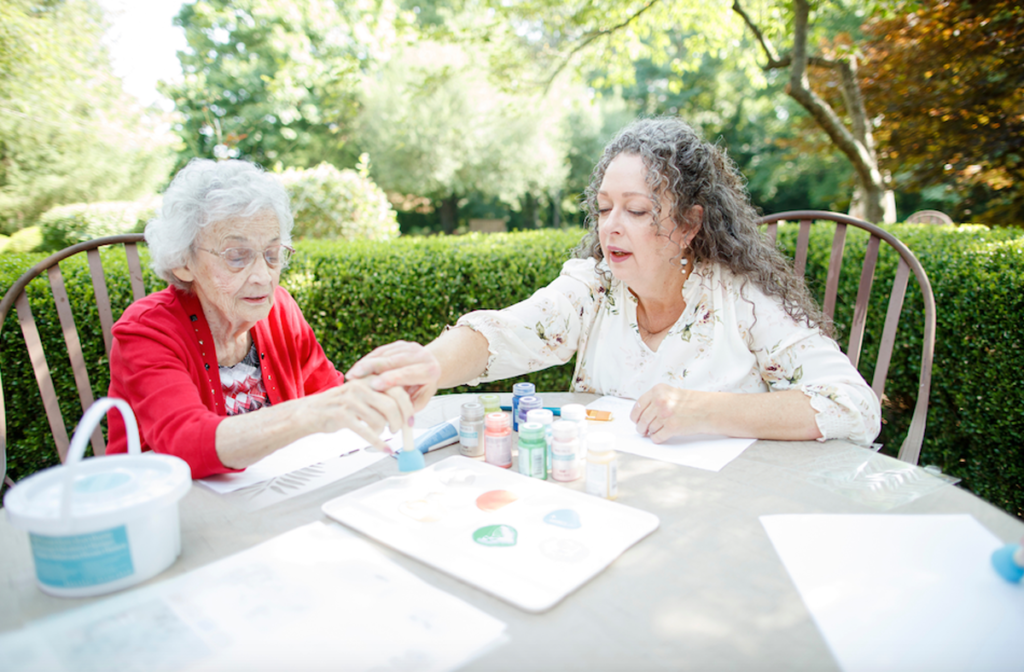
Lexington Memory care facilities are created to provide an exceptional level of care for older adults with memory disorders like dementia and Alzheimer’s disease. They are very different from nursing home care, assisted living communities for the elderly, and other senior living residences.
Memory care facilities assist residents in handling activities of daily living (ADLs). They offer personal care, medical care, and helpful activities like music therapy and physical exercises that improve the person’s cognitive abilities as they deal with the challenges of memory loss.
2. Memory care facilities can provide a better quality of life.

Since dementia and other memory diseases have no cure, memory care aims to help people with these conditions live the best life they can. Many intentional practices go into achieving this, such as limiting medication and prioritizing safety.
Thanks to specialized care, memory care residents may take less medication, limiting side effects that distort their natural metabolism. Even better, memory care facilities are functionally designed to help reduce the possibility of injuries or accidents to your loved ones.
3. Memory care facilities can provide increased socialization for your loved one.

Alzheimer’s special care facilities offer different social activities to improve interaction among people with Alzheimer’s disease.
For example, your loved one could spend time gardening, dancing, singing and playing games —these activities help relieve bouts of anxiety, depression, and loneliness associated with different forms of dementia.
In a memory care community, people with dementia and Alzheimer’s are surrounded by specialized caretakers committed to improving their well-being throughout their stay.
4. Memory care facilities have well-trained staff to care for your loved one.
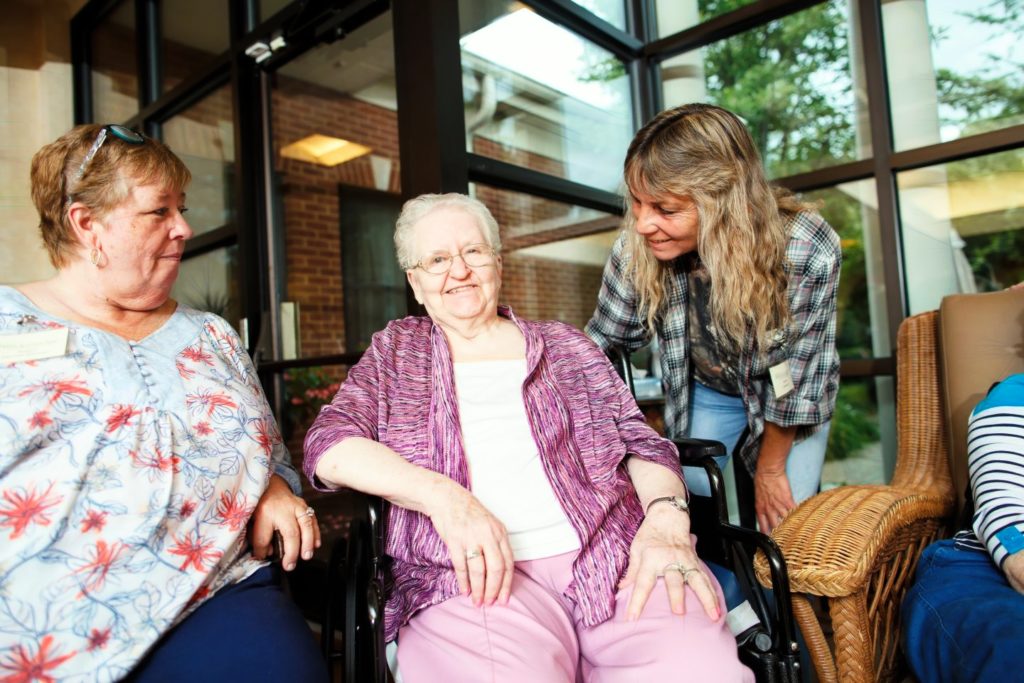
Because of the nature of this disease, a person with dementia or Alzheimer’s needs special assistance with everyday activities. Memory care staff members are familiar with the best care practices for people living with memory conditions, including the latest developments in Alzheimer’s treatments, dementia treatments, and geriatric care in general.
Equipped with this knowledge, they can help them navigate dementia challenges and deal with this new phase in their lives.
For example, The Breckinridge Memory Care caregivers undergo specialized training to help them cater to the specific needs of older adults with dementia.
To ensure your loved one gets the care and compassion they deserve, memory care facilities have fewer residents per staff, increasing the caregiver/resident ratio. The standard practice is to have the ratio of caregivers to residents at five or fewer residents to one caregiver.
At The Breckinridge Memory Care, we limit our home to 24 residents at a time. This way, our caregivers can pay the highest level of attention to your parents, and meet their unique care needs, as they deal with the challenges of dementia.
5. Memory care facilities are specially designed for those with memory care disorders.
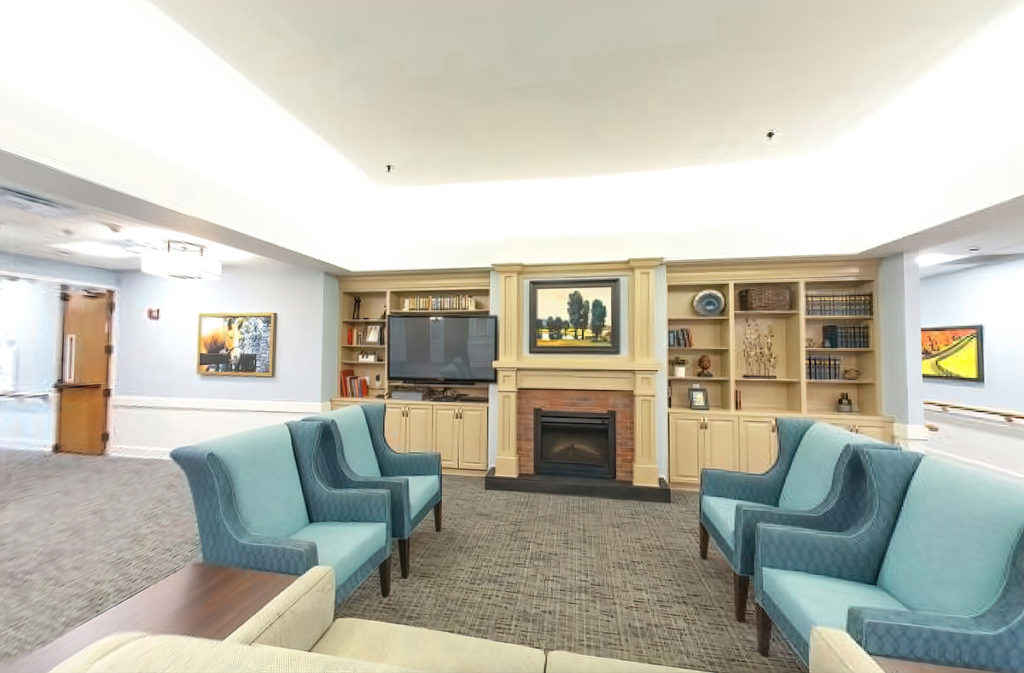
As dementia worsens, your loved one will find it increasingly difficult to move around at home without wandering off or getting hurt. At this point, your home becomes an unsafe environment for them, and moving them into a memory care community is the better and safer option.
Memory care is specially designed for the comfort and safety of your elderly parents living with Alzheimer’s and dementia.
6. Memory care facilities will help keep your loved ones engaged.
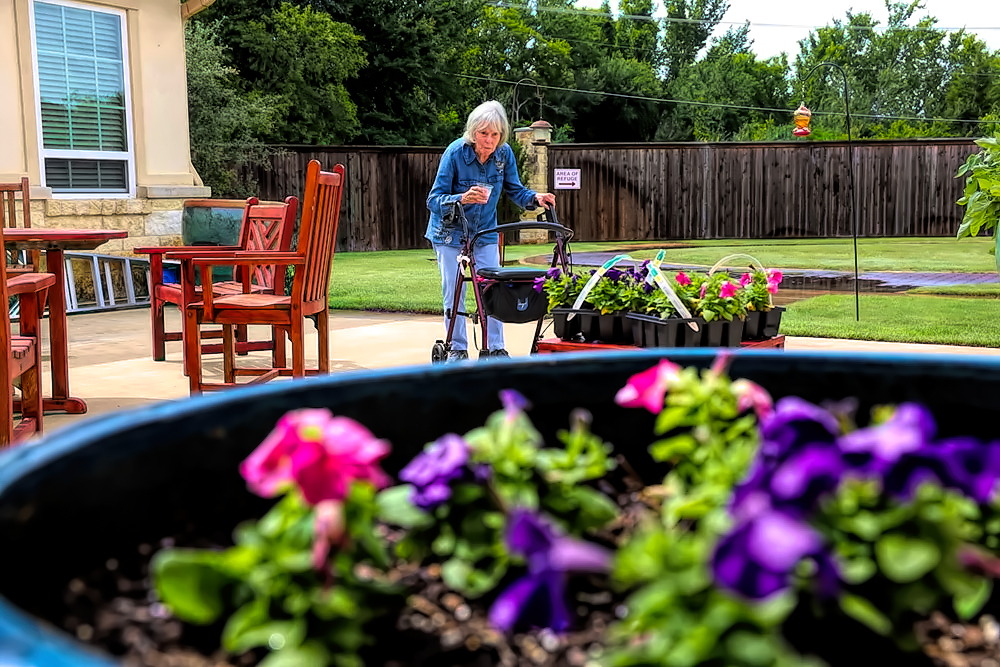
Contrary to what many people believe, social activities are a great way to enrich the life of a person with dementia. Research shows that indoor and outdoor socialization can help to improve the quality of life of people living with memory conditions and reduce their feeling of loneliness.
At The Breckinridge, our residents participate in indoor activities like listening to music, arts and crafts, and games. They also engage in outdoor activities, including taking a walk outside and sitting in the garden for conversations.
All of these activities lower feelings of depression and help them navigate behavioral changes.
7. Memory care facilities are highly regulated.

Because they provide specialized care for people with dementia, memory care facilities must meet strict requirements of state regulatory bodies in their communities before obtaining a license.
In addition, they have frequent regulatory oversight to ensure high-quality dementia and Alzheimer’s care for residents.
8. Memory care facilities provide an advanced approach to dementia care.

Memory care facilities require their staff to keep up with the latest advances in Alzheimer’s and dementia care. This is because they need to have a good understanding of the disease process and how to enhance the person’s quality of life.
9. Memory care facilities are secure.
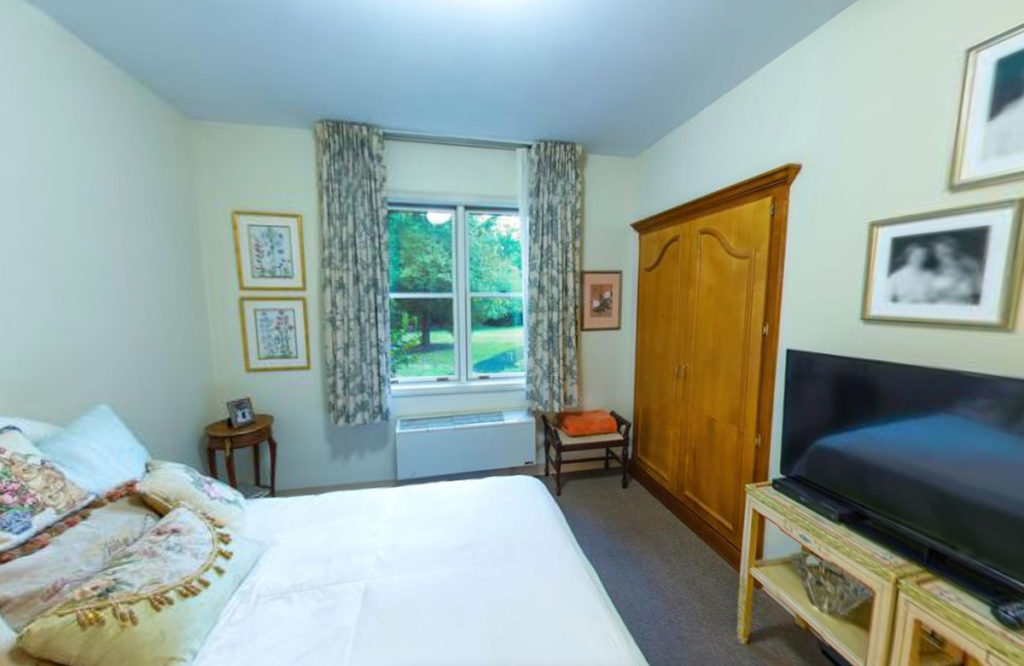
Memory Care facilities need to be safe and secure. Because your loved one with dementia can wander off and get hurt, memory care facilities observe necessary safety and security precautions, such as alarm systems, fully enclosed outdoor areas with walking paths, as well as a functionally designed indoor space.
Despite these safety features, a memory care facility doesn’t feel like a prison. The whole idea is to keep residents safe without making them feel trapped or restricted. At The Breckinridge Memory Care, our memory care residents have the space to be active under the supervision of our caregivers and within the boundaries of the facility. They can spend time relaxing or engaging in some other activity in our enclosed outdoor garden because it feels like a comfortable home.
10. Memory care facilities offer opportunities for you to interact with your loved one.

Caring for people with dementia takes a team, so memory care facilities adopt a collaborative effort. They often offer activities that encourage the residents’ families to visit the facilities and spend time together.
For example, a memory care community can host a family dinner, parent-child arts and crafts event, or invite you to participate in your loved one’s music therapy.
The idea here is to build deeper connections between the resident and their family members, even though they are away from them. For example, moving your parents to memory care shouldn’t affect your family bond; you can still see and connect with them in a memory care facility on a routine basis while knowing they are safe.
Summary
Moving your parents to a memory care facility isn’t an easy decision, but they will have the best care for their condition. With a memory care facility like The Breckinridge Memory Care, you can be assured that your loved one will enjoy the highest level of support and assistance as they deal with the life changes associated with dementia.
Schedule a tour of The Breckinridge Memory Care today to learn more about our community and our long-term care services for people with dementia.





